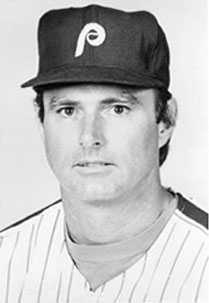Try to recall your feelings when the Lions lucked out and had Barry Sanders fall into their laps with the #3 overall pick, after the Packers went brain dead and selected OT Tony Mandarich from MSU. Remember how special of a talent Barry was coming out of college -- having applied for draft eligibility early. Remember how the Lions hadn't had a superstar running back since Billy Sims -- and his career was cut short due to injury.
Did you have any thoughts of trading him? Even though the Lions could have probably commanded quite a bounty, at least in terms of quantity?
I'd wager that the notion of trading Barry Sanders didn't even enter into your 1989 mind.
And nor should the idea of trading wide receiver Calvin Johnson have gotten any credible amount of consideration.
I'm going to say this just once, so I'm going to make it as clear as crystal: When a player of Johnson's magnitude becomes available, YOU DO NOT TRADE HIM!!
Let's try this again.
When a player of Johnson's magnitude becomes available, YOU DO NOT TRADE HIM!!
Do you need any clarification?
There was an annoyingly large number of folks who assailed the Lions and president Matt Millen for drafting the best wide receiver prospect in a decade, then having the gall to actually keep him.
Oy vay.

You don't trade future sure-bet Pro Bowlers for four maybes. Period.
The Lions, according to the annoying ones, should have packaged Johnson for more picks and some players and really went to town addressing their multitude of needs. Perhaps a cute little theory, and maybe one that could work, if only you are able to do one thing: make several dead-on decisions, instead of just one.
Johnson is a special player. He is, according to the offensive guru Mike Martz, the best wide receiver Martz has seen coming out of college. EVER. The consensus on Johnson was unanimous: he's a blend of so many great receivers, rolled into one, that it will make your head swim.
So you want to go and trade a guy like that??
For who, exactly? The Lions, in one selection, got it right with Calvin Johnson. He was widely regarded as the best player in the draft. But if you trade him, now instead of being perfect once, you'd better be perfect three or four times (depending upon who you listened to, the Lions could have commanded three or four draft picks/players for Johnson in a trade), because if just one of the acquisitions busts, then you've made a bad trade automatically.
Frankly, any trade involving Johnson, short of dealing him for Marvin Harrison and LaDainian Tomlinson, is a bad one, in my book.
Yes, the Lions have holes. Yes, their offensive line is horrid. Yes, they have drafted receivers a lot lately, with limited success.
So what? You draft Johnson, thank your lucky stars, for once, that you finished 3-13, and patch the holes elsewhere in the draft. Millen maneuvered himself enough so he had three second round picks and three fifth rounders, all without having to trade Johnson.
The Lions have a gem in Calvin Johnson. Doubtless had they traded it, they would have ended up with at least one piece of fool's gold in return.
Keeping him is fool-proof.






























